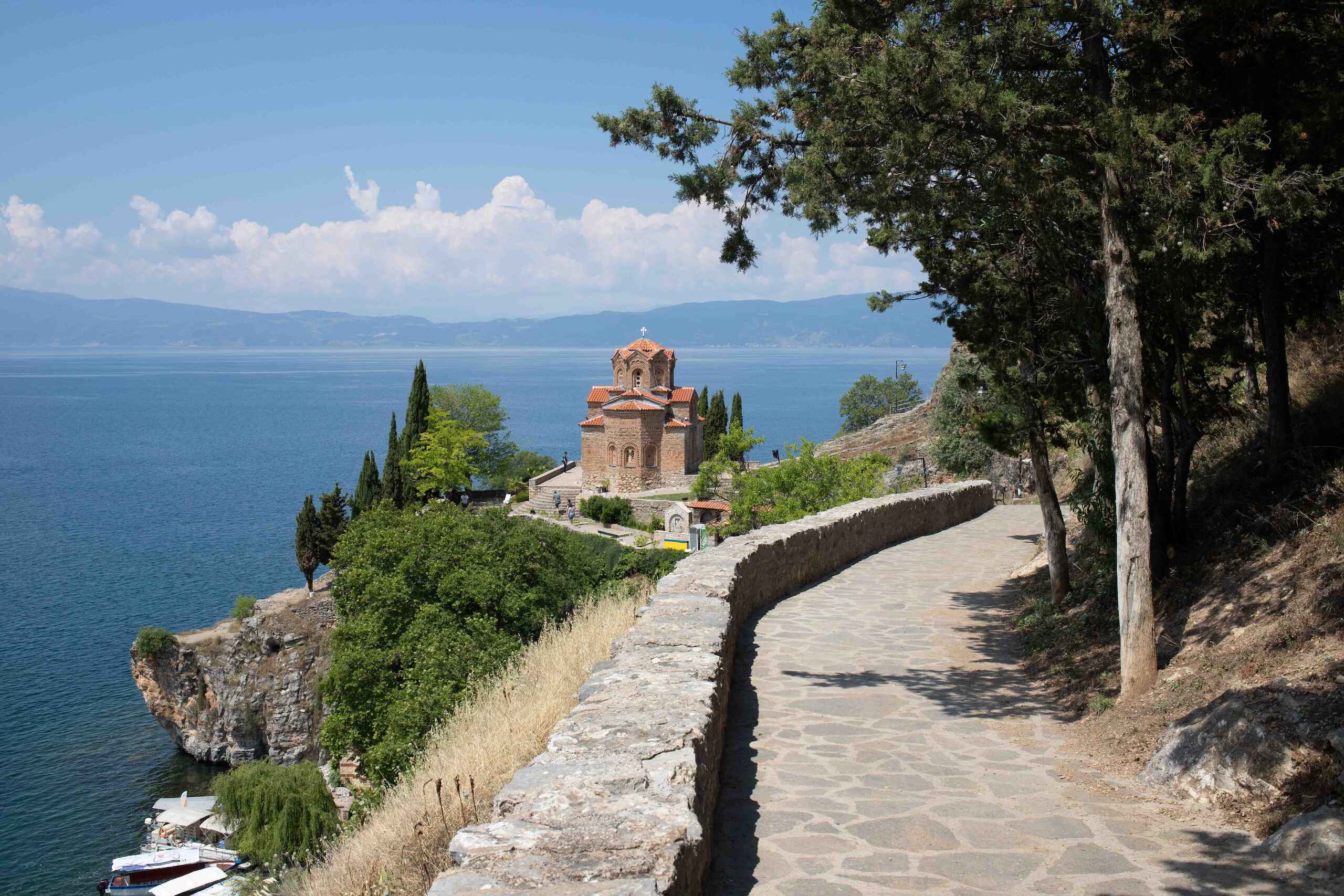
Photo: Körber-Stiftung
Field Trip through North Macedonia and Albania
13 to 18 June 2022
After a two-year break due to Covid, the time had come again in June 2022: The annual field trip of the Körber Foreign Policy Network led the members to North Macedonia and Albania.
North Macedonia
The starting point of the trip was Skopje. The first day of the diverse program began with an exchange with Dragan Nikolic, State Secretary at the Ministry of Defense. The discussion focused on North Macedonia's NATO membership and the development of the country's cyber capabilities. After this interesting tour d`horizon of security and defense policy, the group continued to the German Embassy in Skopje. There, it was welcomed by Ambassador Anke Holstein. Over a cup of coffee, the experienced diplomat gave the guests a briefing on the German perspective on current political developments in North Macedonia and the region.
The follow-up meeting took the participants to the country's seat of government, where they were welcomed by Edmond Ademi, the foreign policy advisor to the Social Democratic Prime Minister Dimitar Kovachevski. As in many of the meetings in Skopje the discussion focused on the country's perspective to join the EU. Ademi made it clear that EU accession is the top priority for all actors of the Macedonian political landscape. The day continued with a meeting with Zoran Popov, who, as State Secretary in the Ministry of Foreign Affairs, presented his ministry's view of the most important regional and European policy issues. A discussion with Radmila Šekerinska concluded the day. In her presentation, the former Minister of Defense and party leader of the Macedonian Social Democrats not only traced the major lines of Macedonian policy in recent years, but also addressed the current challenges facing the government. The day was rounded off by a joint dinner with representatives of Macedonian youth organizations, who not only talked about their work but also reported on the concerns and hopes of the young generation. In addition, a delicious Macedonian meal was served and explained by the restaurant owner, so that the group had the opportunity to immerse themselves in the typical cuisine of the country.
The second day started with a meeting with two experts from the Macedonian think tank community. From public opinion on EU enlargement policy to the role of think tanks in North Macedonia - it was a wide range of topics that the group was able to discuss with Simonida Kacarska, Director of the European Policy Institute (EPI), and Marko Trosanovski, President of the Institute for Democracy "Societas Civilis" Skopje.
The next item on the agenda took the travelers out of the meeting rooms and into the center of the capital. On a guided tour, the group learned about the city's turbulent history and diverse architecture. For its last meeting in Skopje, the group headed to St. Cyril and Methodius University to speak with Aleksandar Spasenovski. The professor at the Faculty of Law and former MP complemented the group's previous insights and perceptions with a journey through Macedonian history and politics.
Full of impressions, the group set off from there towards Lake Ohrid. There followed a guided tour that focused on the role of religion in North Macedonia, leading the group not only to the sight of unique frescoes in the local Orthodox churches, but also addressing interfaith coexistence.
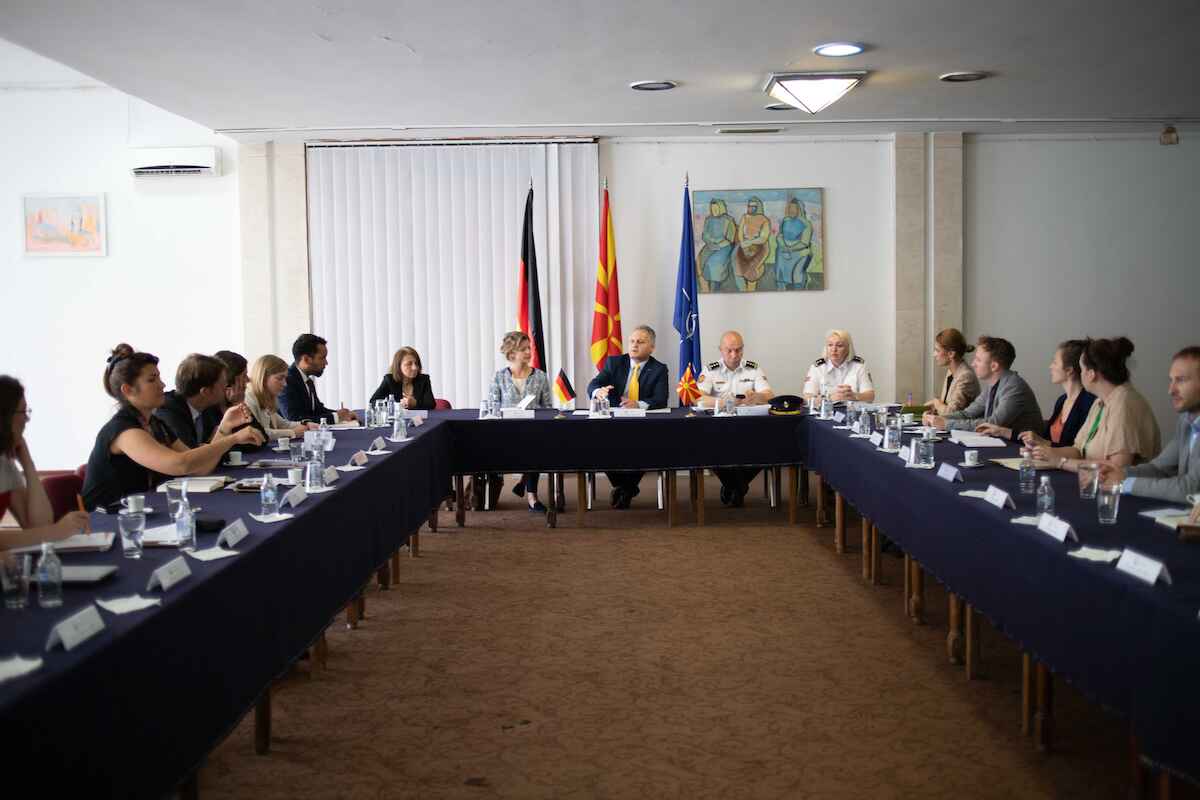
Discussion with Dragan Nikolic, State Secretary, Ministry of Defence, North Macedonia 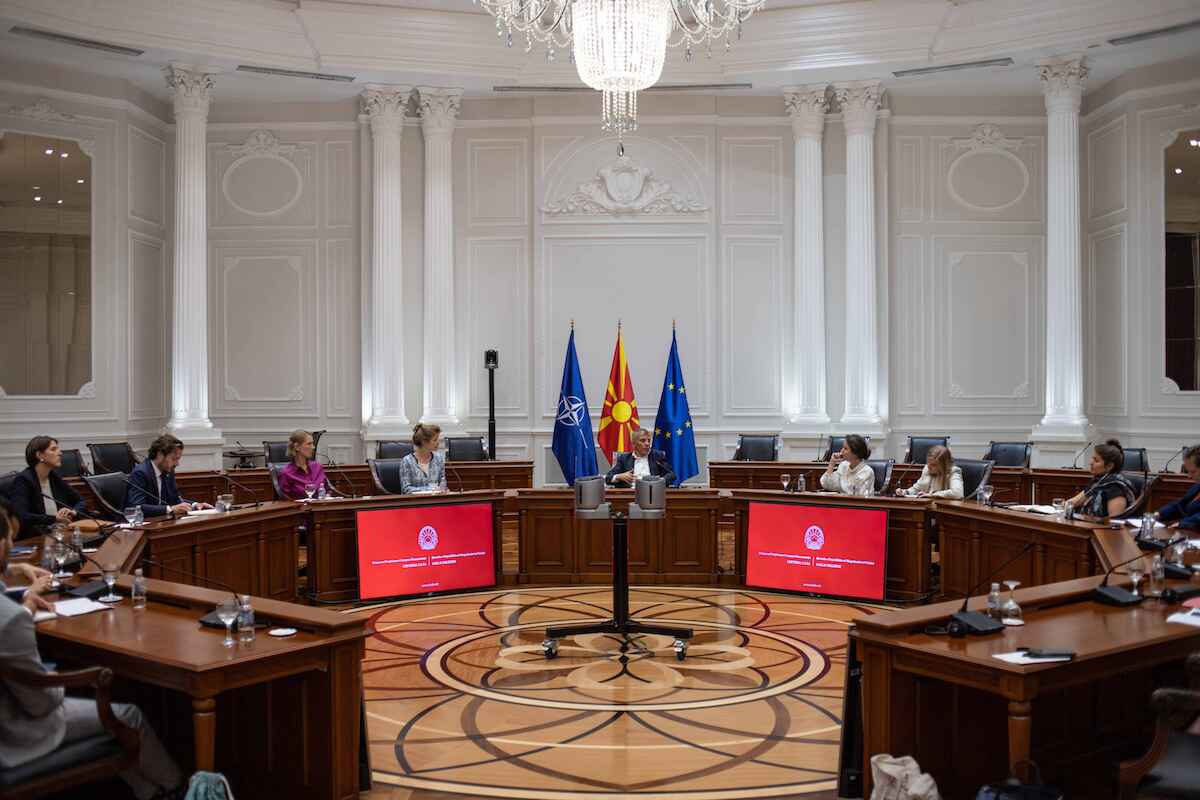
Discussion with Edmond Ademi, Foreign Affairs Advisor to the Prime Minister 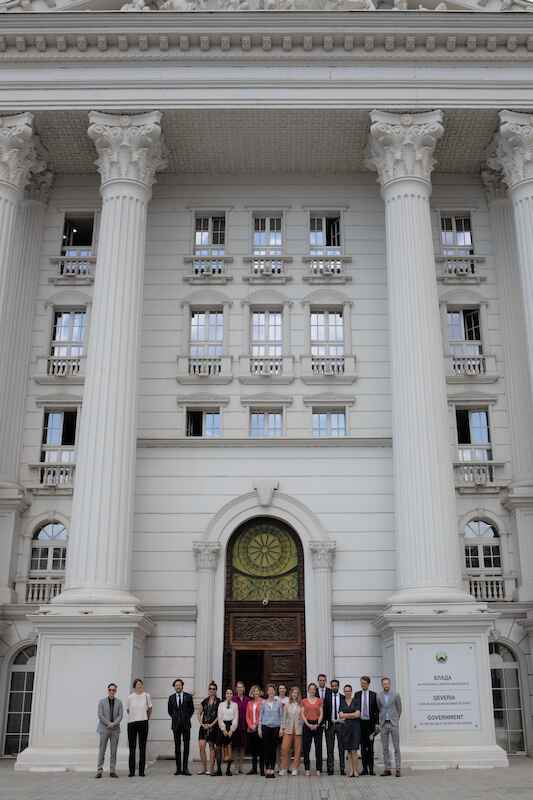
Members of Körber Network Foreign Policy in front of the Government Offices in Skopje 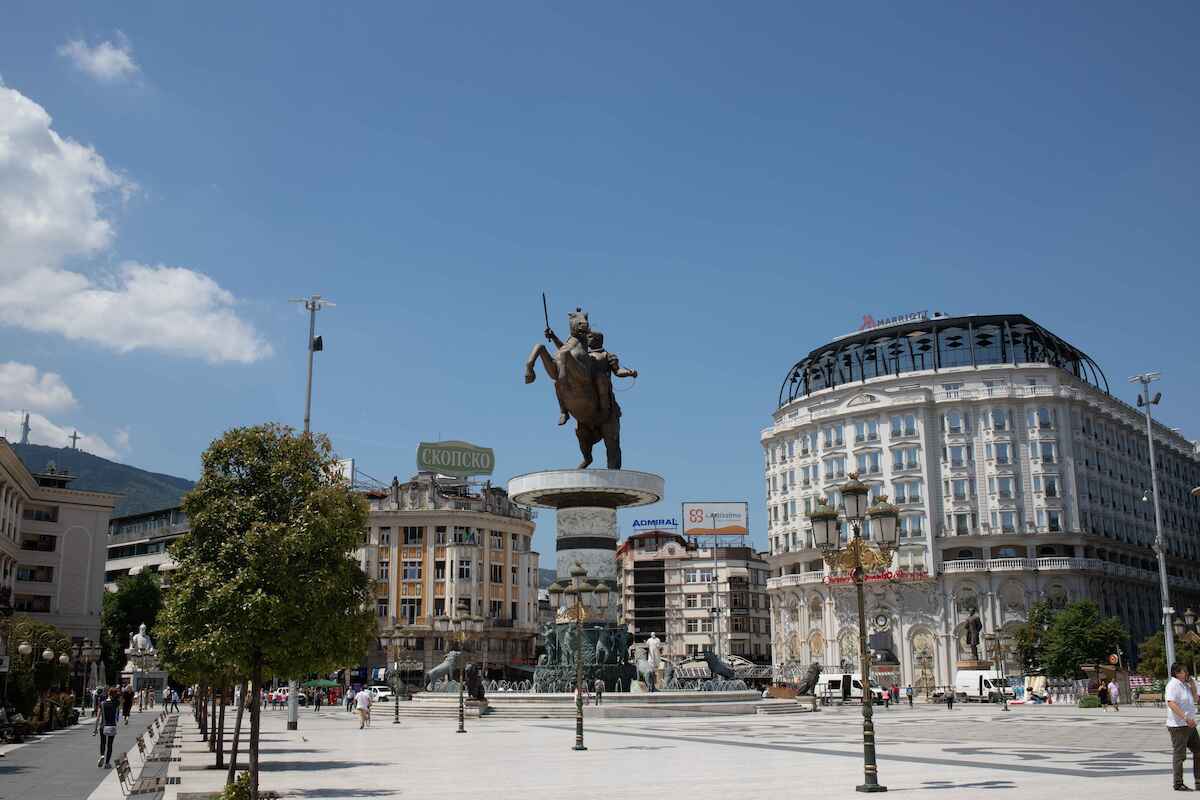
Skopje 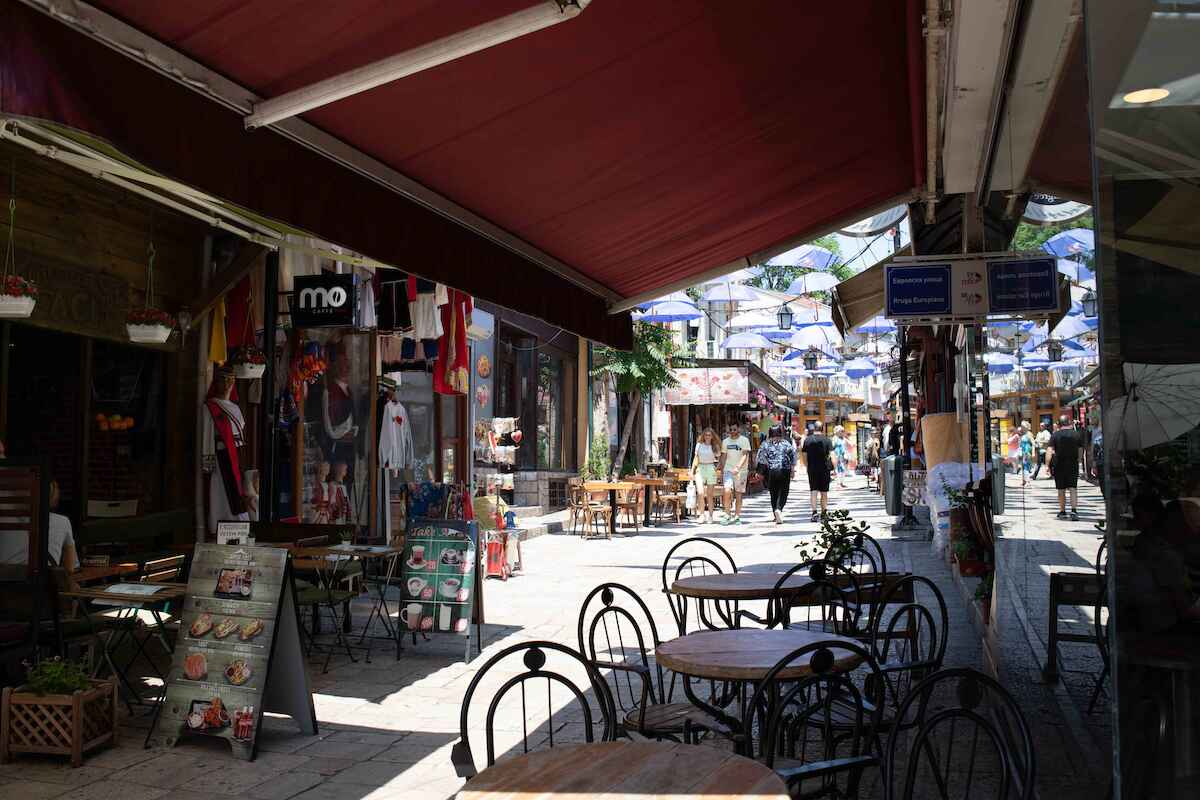
Old Bazar Skopje 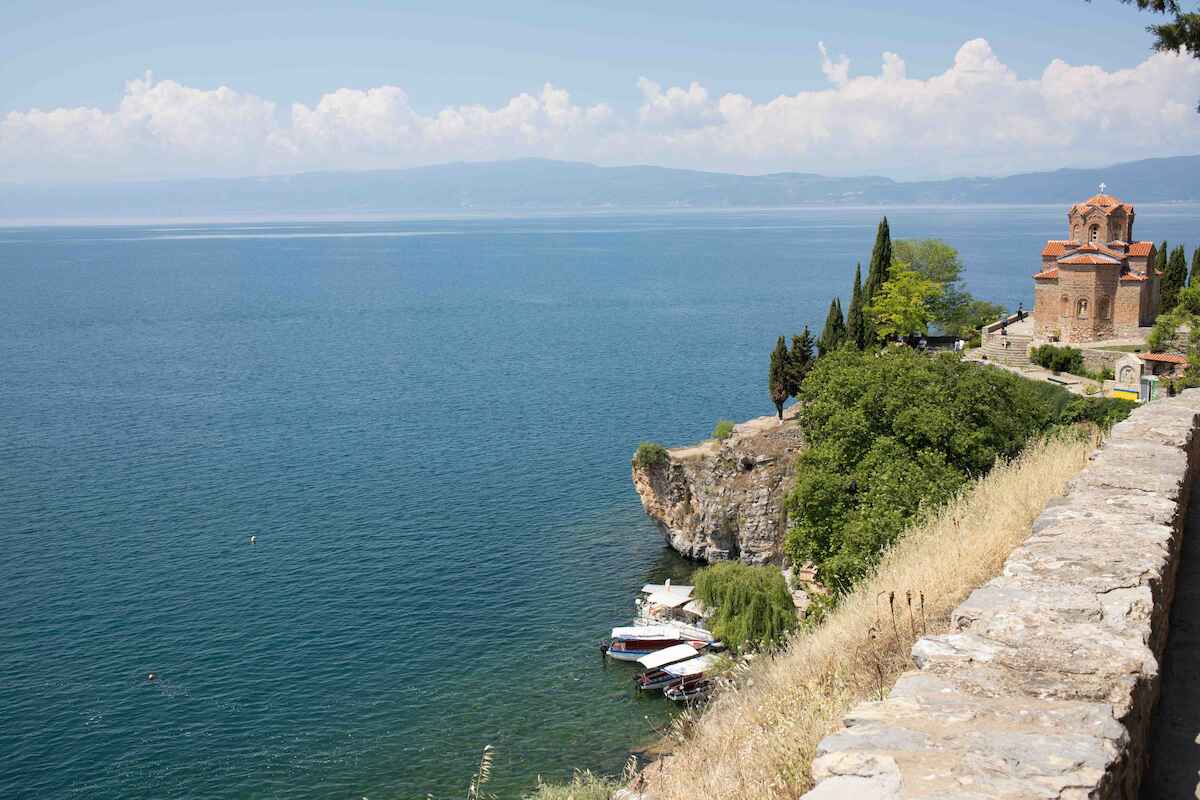
Ohrid, North Macedonia
Albania
The second part of the field trip began with the journey from Ohrid to Tirana, which took the group to Albania. The programme began with a discussion with Deputy Foreign Minister Megi Fino and other representatives of the Ministry for Europe and Foreign Affairs on the prospects for EU accession negotiations, Albania's membership in the United Nations Security Council, the Open Balkans Initiative and the impact of the war in Ukraine. Afterwards, the group met representatives of German political foundations and Albanian civil society at a reception at the residence of German Ambassador Peter Zingraf.
On the penultimate day of the trip, the day began with a breakfast with the Prime Minister of Albania, Edi Rama, followed by a visit to the Parliament and a conversation with Jorida Tabaku, MP and representative of the largest Albanian opposition party, the Democratic Party of Albania. Topics such as EU accession, the political situation in the Balkans, the influence of Russia and the fight against corruption and organized crime dominated the conversation.
In the afternoon, the group met with Gresa Hasa, activist and editor of Shota magazine, and Kristina Voko, director of the Balkan Investigative Reporting Network in Albania, for a discussion on press freedom, the role of civil society in Albania, and the 2018/2019 student protests. This was followed by a visit to the Tulla Cultural Center and a discussion on rural development and agriculture in Albania. At the end of the day, the group met with Jonila Godole from the Institute for Democracy, Media and Culture and learned a lot about the organization's work on collective memory and remembrance of Albanian history under Enver Hoxha's dictatorship and the still very reluctant reexamination and processing of this period.
The last day of the trip was dedicated to Albanian history: After a guided tour through the museum Bunk'art 1, which focused on the politics and society of Albania under Enver Hoxha's dictatorship, the group traveled even further back in time during a visit to Kruja and walked in the footsteps of Skanderbeg - the national hero of Albania - before returning to Berlin in the evening.
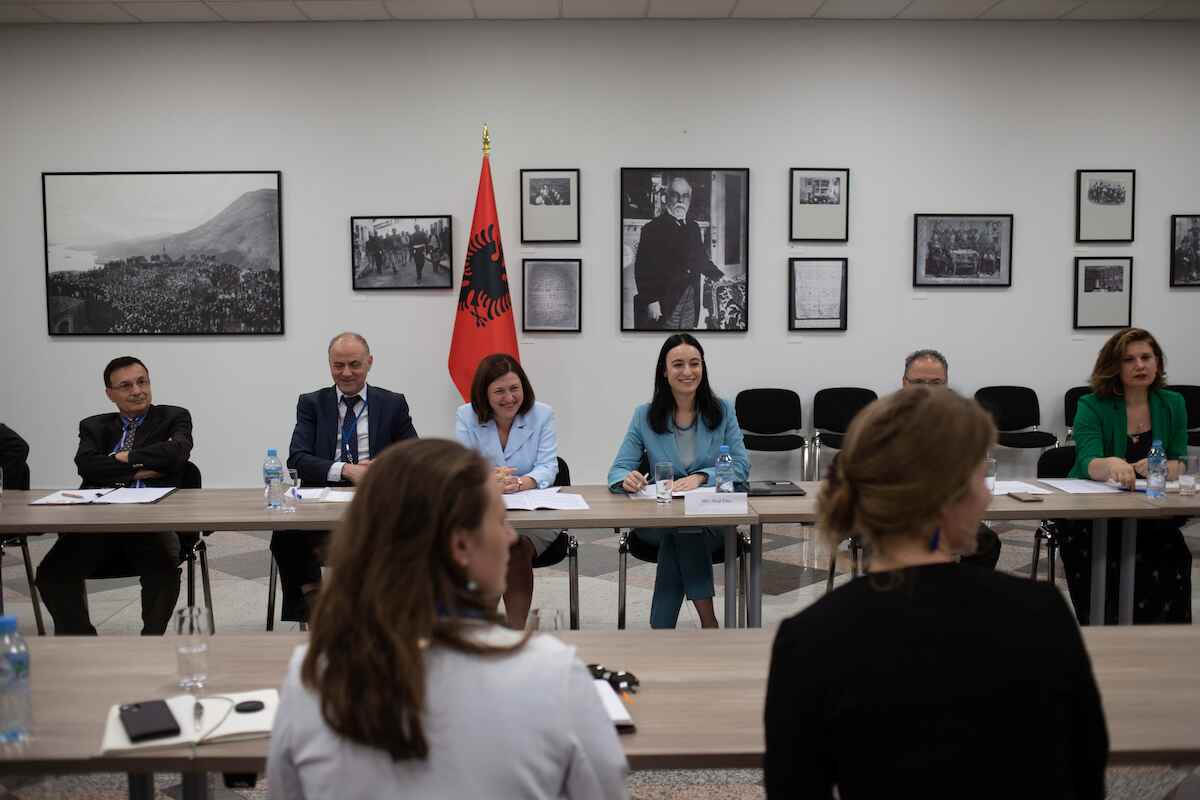
Discussion at Albanian Foreign Ministry 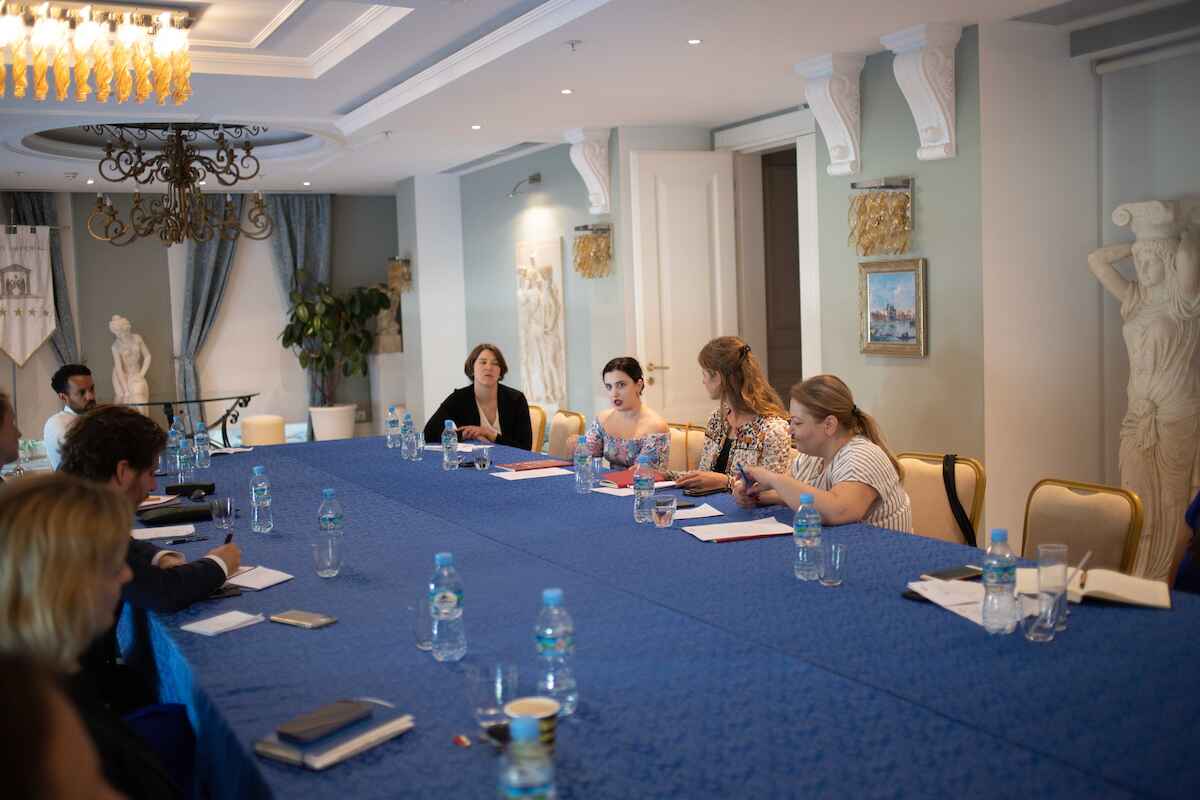
Discussion with Gresa Hasa and Kristina Voko 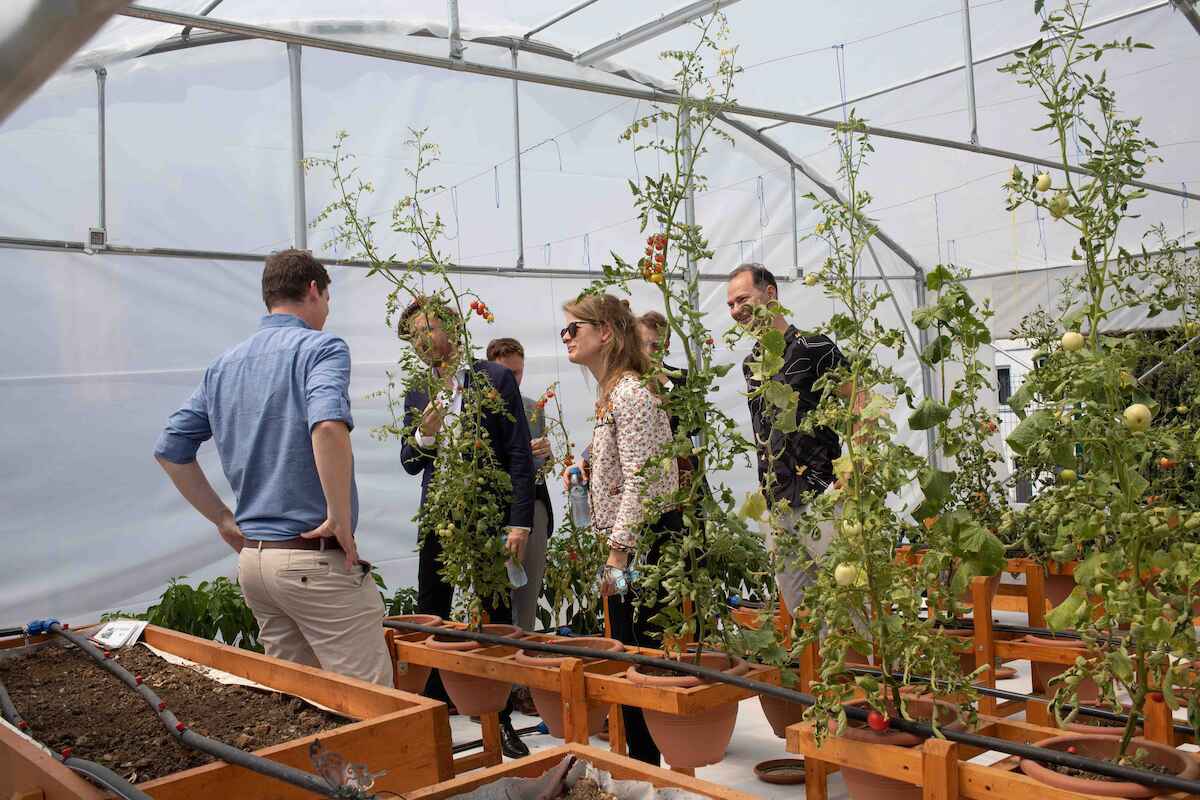
Visit to Urban Gardening Project in Tirana 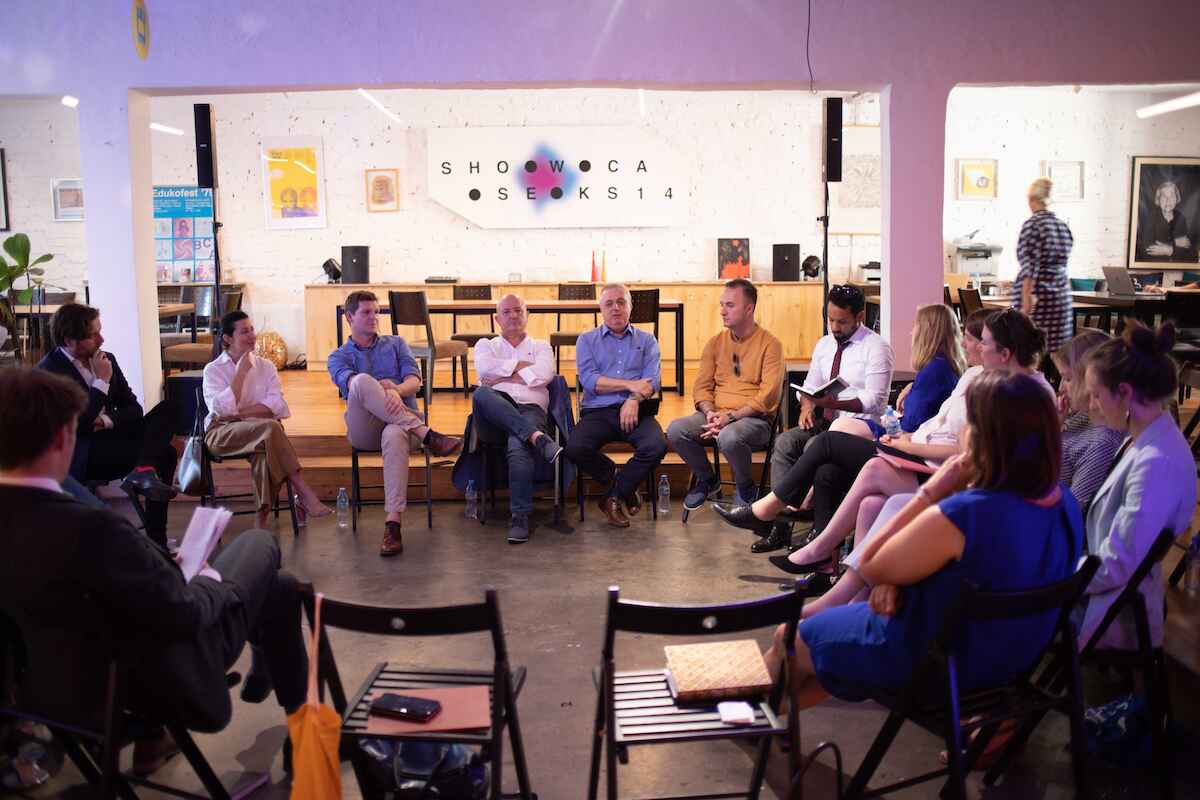
Discussion with Agriculture Experts at Tulla Culture Center 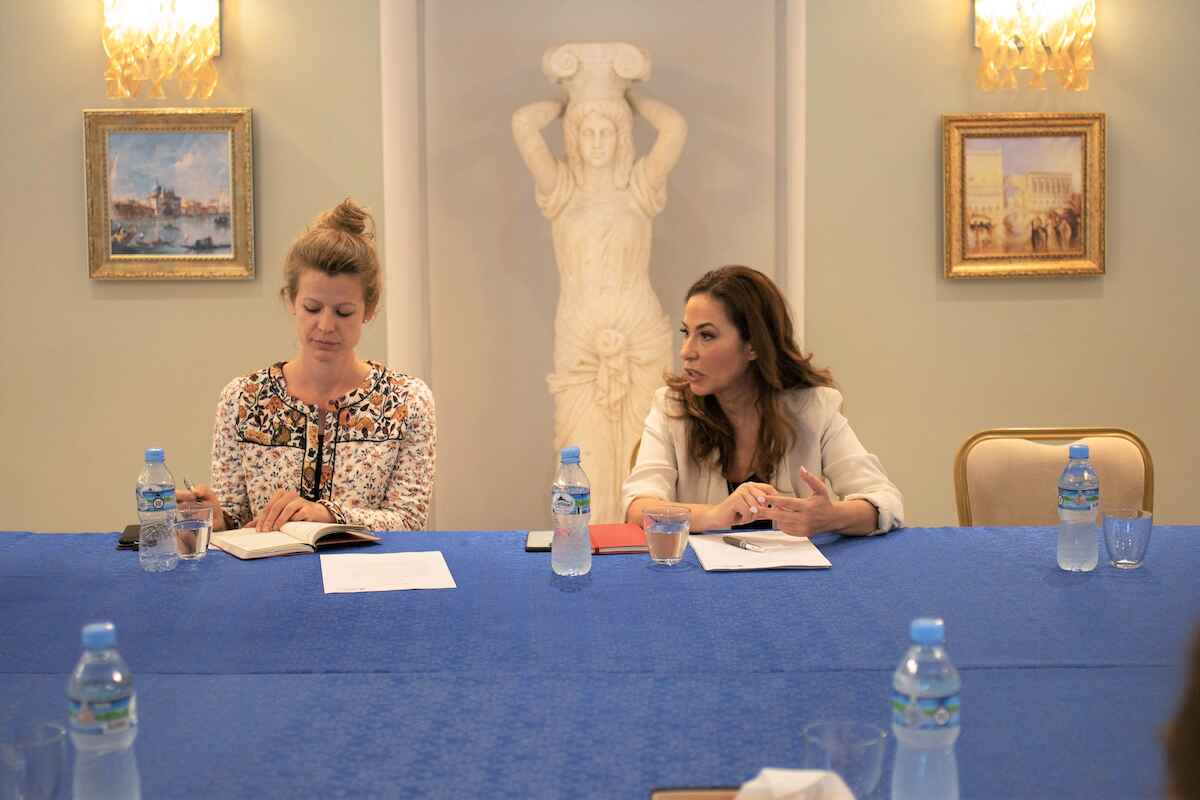
Discussion with Jonila Gondole 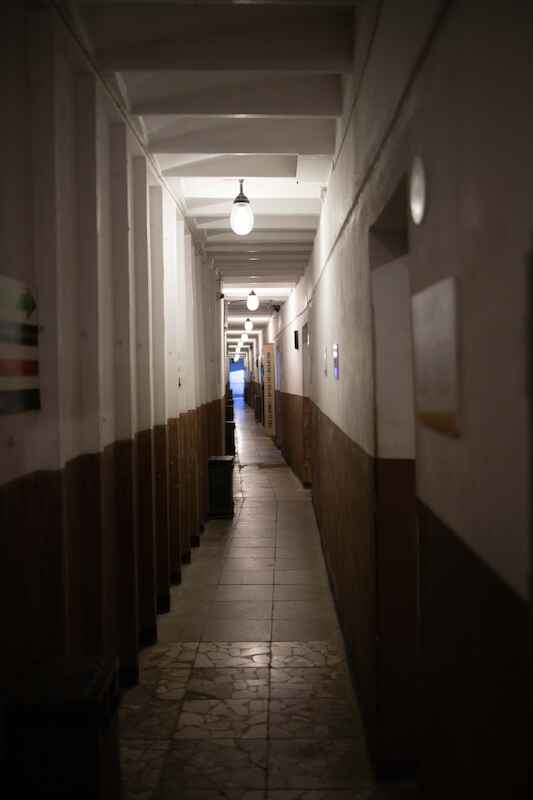
Bunk’art 1, Tirana 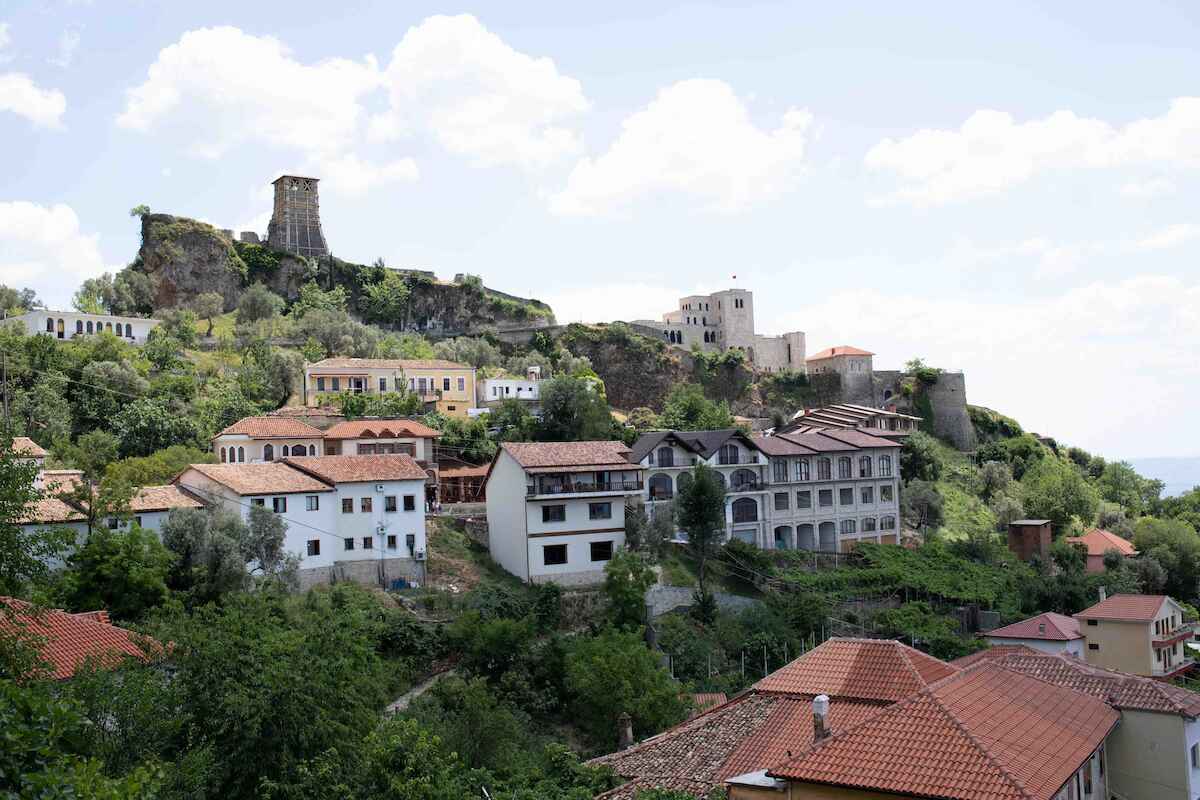
Kruja, Albania
Previous Field Trips
Since 2005, over 15 Field Trips of the Körber Network Foreign Policy have taken place in more than 20 countries.
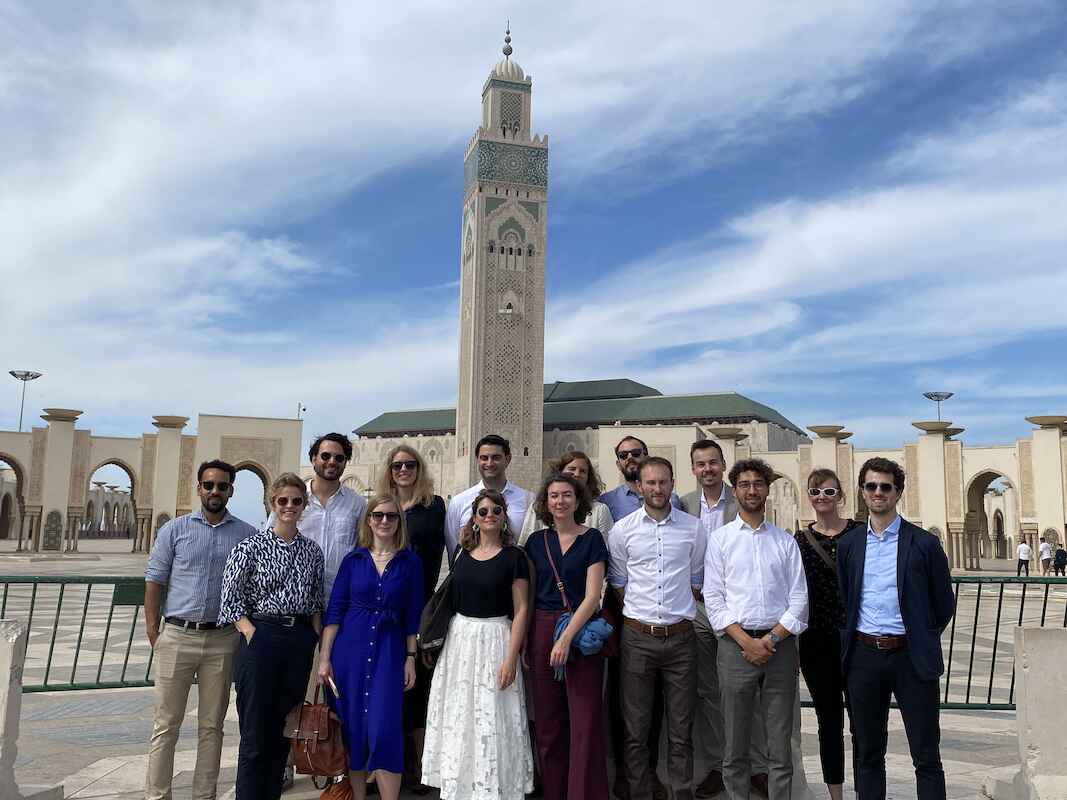
Field Trip to Morocco, 2023 Photo: Körber-Stiftung 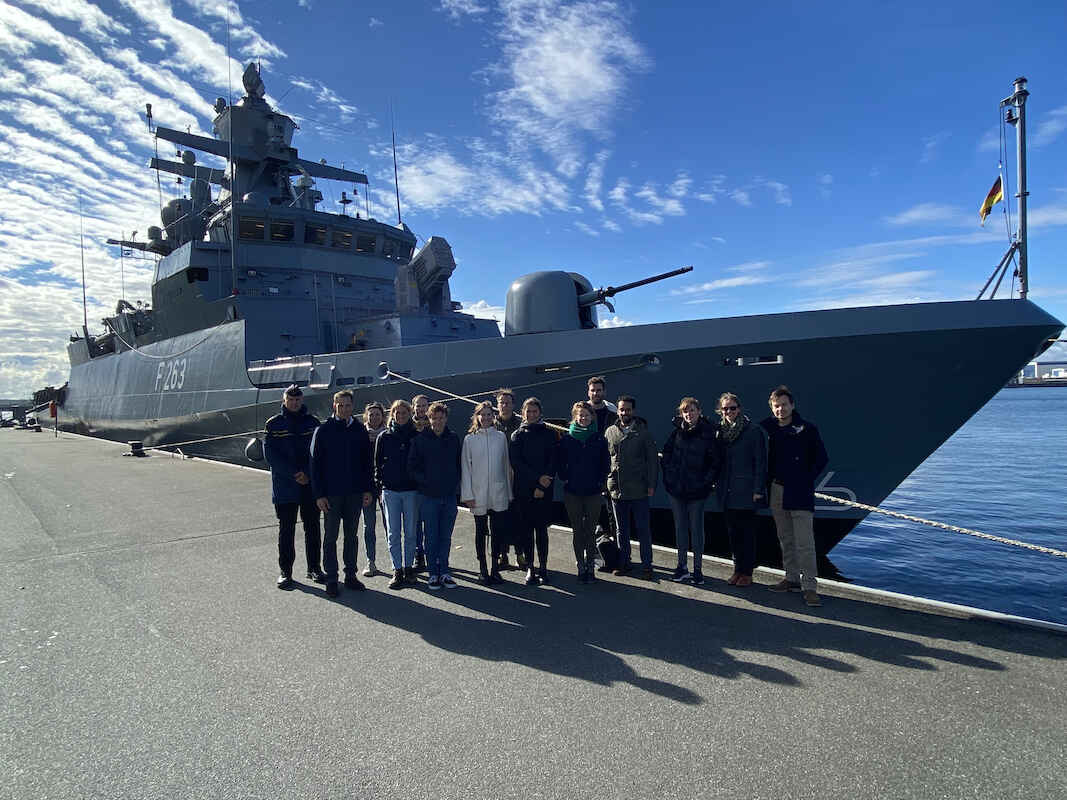
Mini Field Trip to Rostock and Kiel, 2022 Mini Field Trip to Rostock and Kiel, 2022 
Field Trip to North Macedonia and Albania, 2022 Photo: Körber-Stiftung 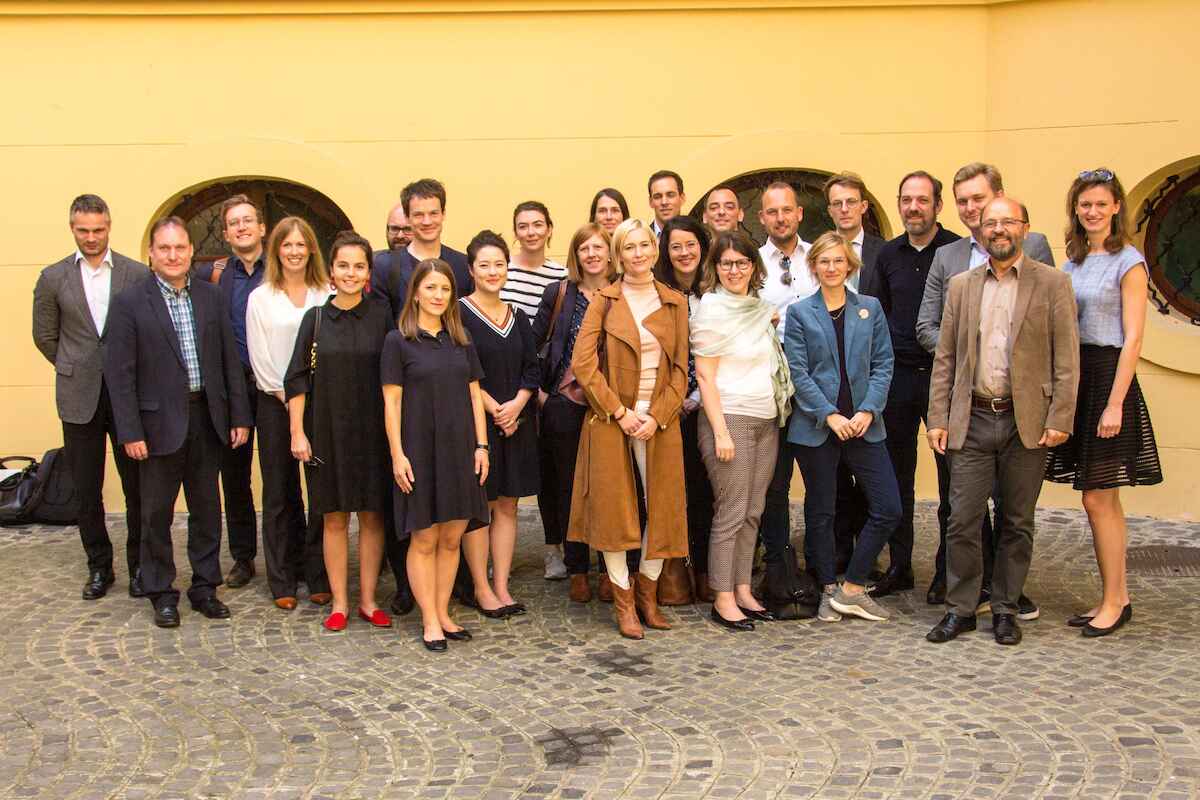
Field Trip to Hungary and Slovakia, 2019 Photo: Körber-Stiftung 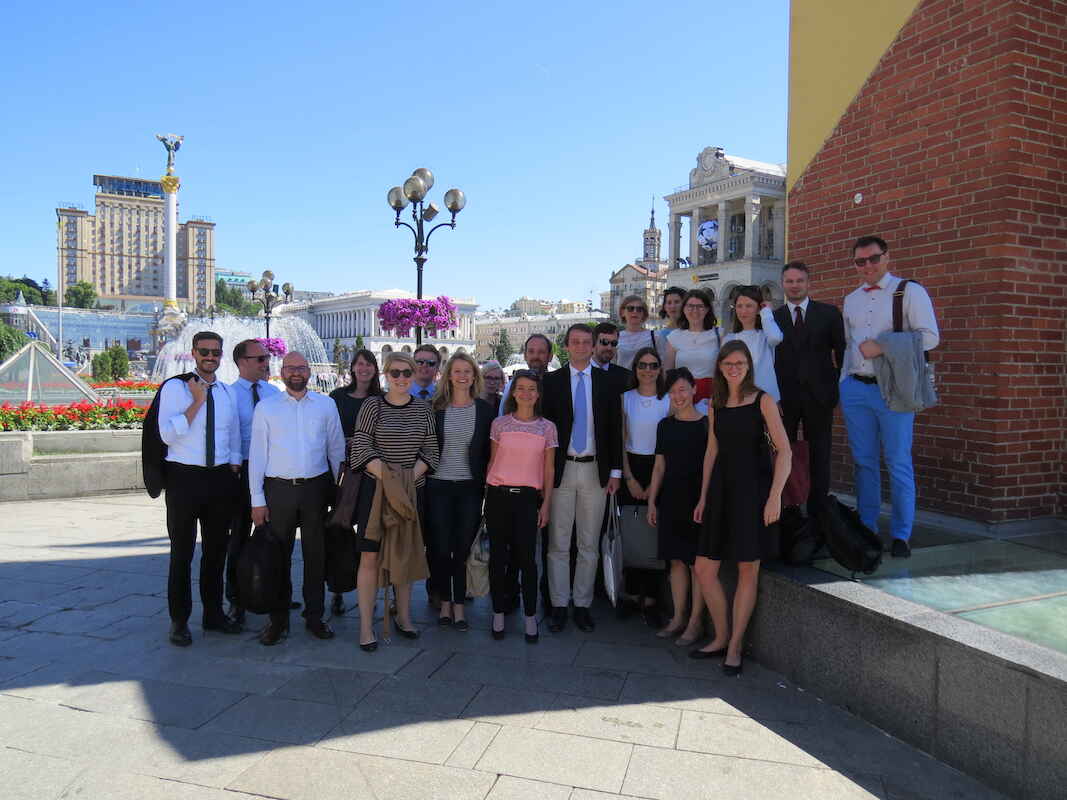
Field Trip to Ukraine and Belarus, 2018 Photo: Körber-Stiftung 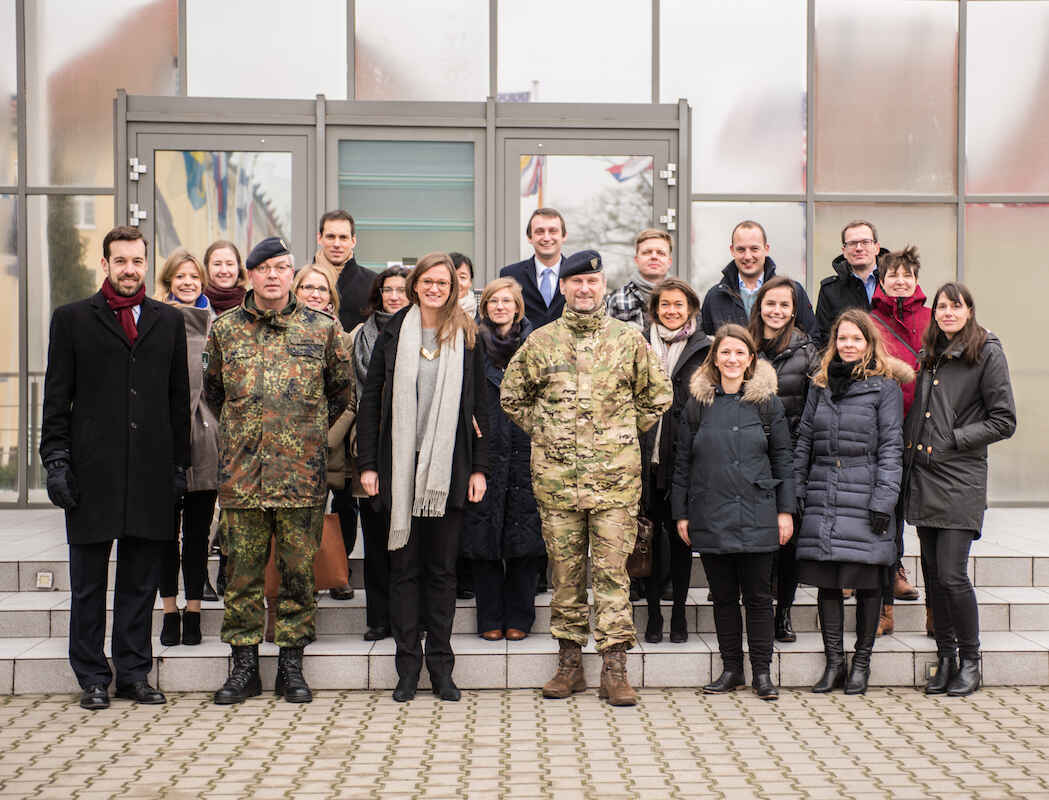
Mini Field Trip to Szczecin, 2018 Photo: Körber-Stiftung 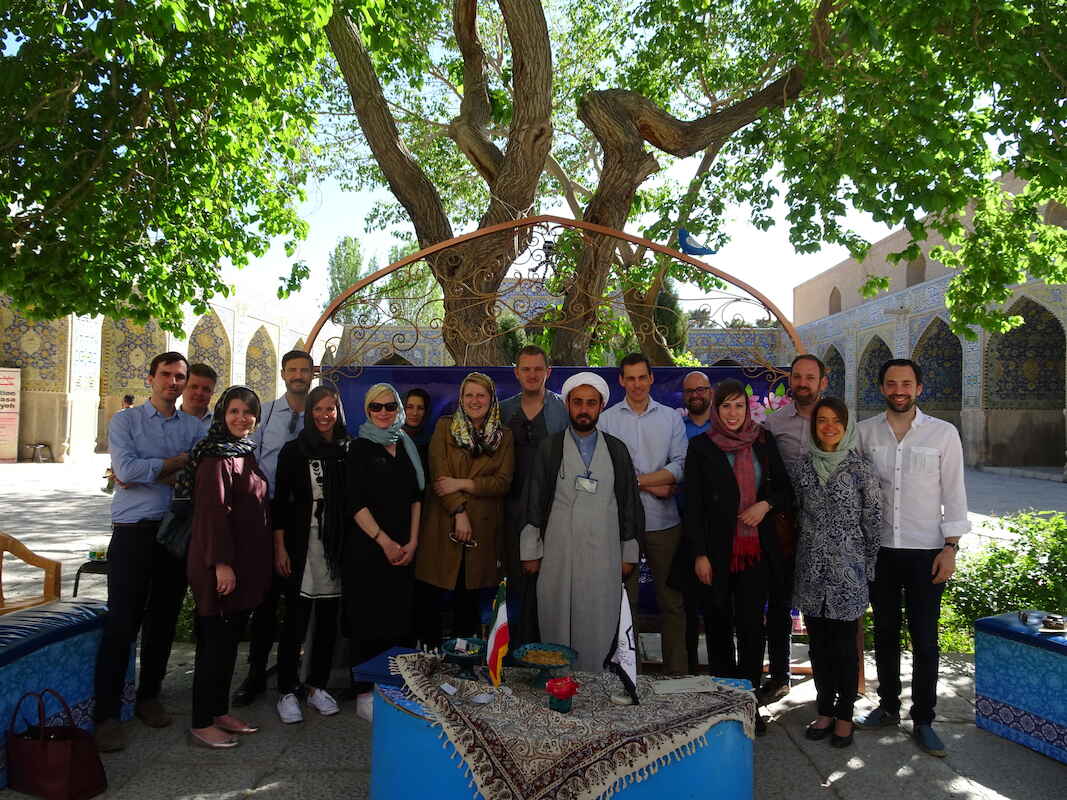
Field Trip to Iran, 2017 Photo: Körber-Stiftung 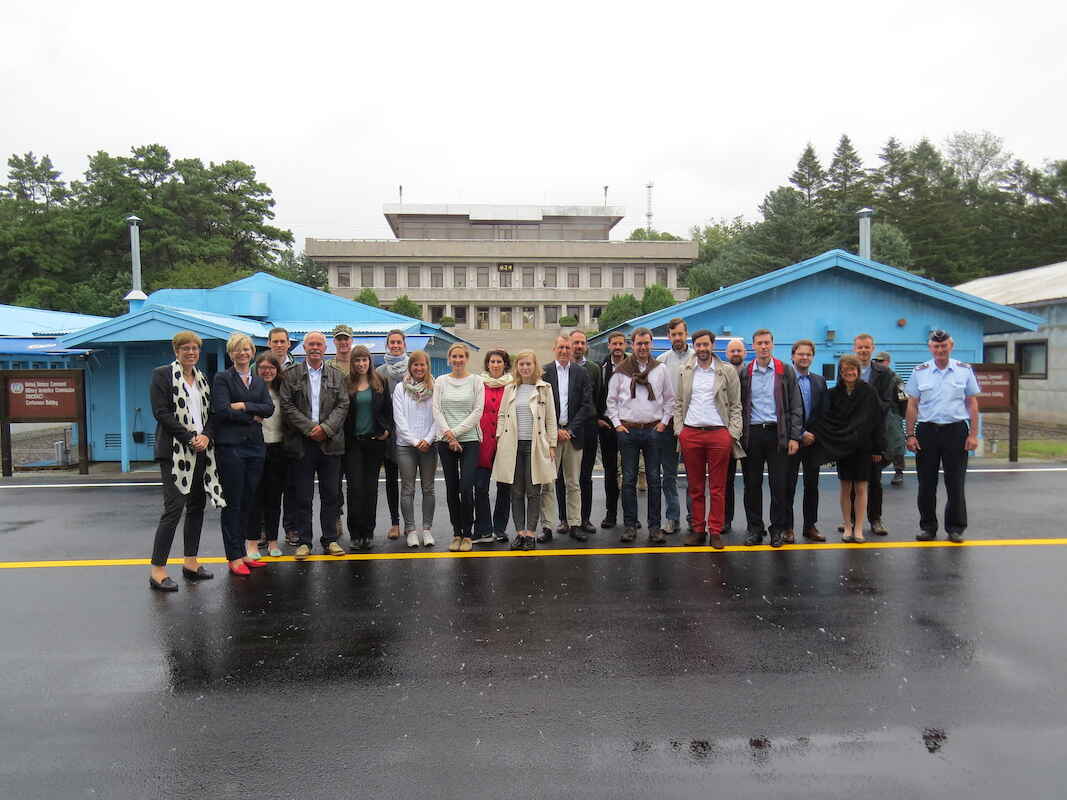
Field Trip to Korea, 2016 Photo: Körber-Stiftung 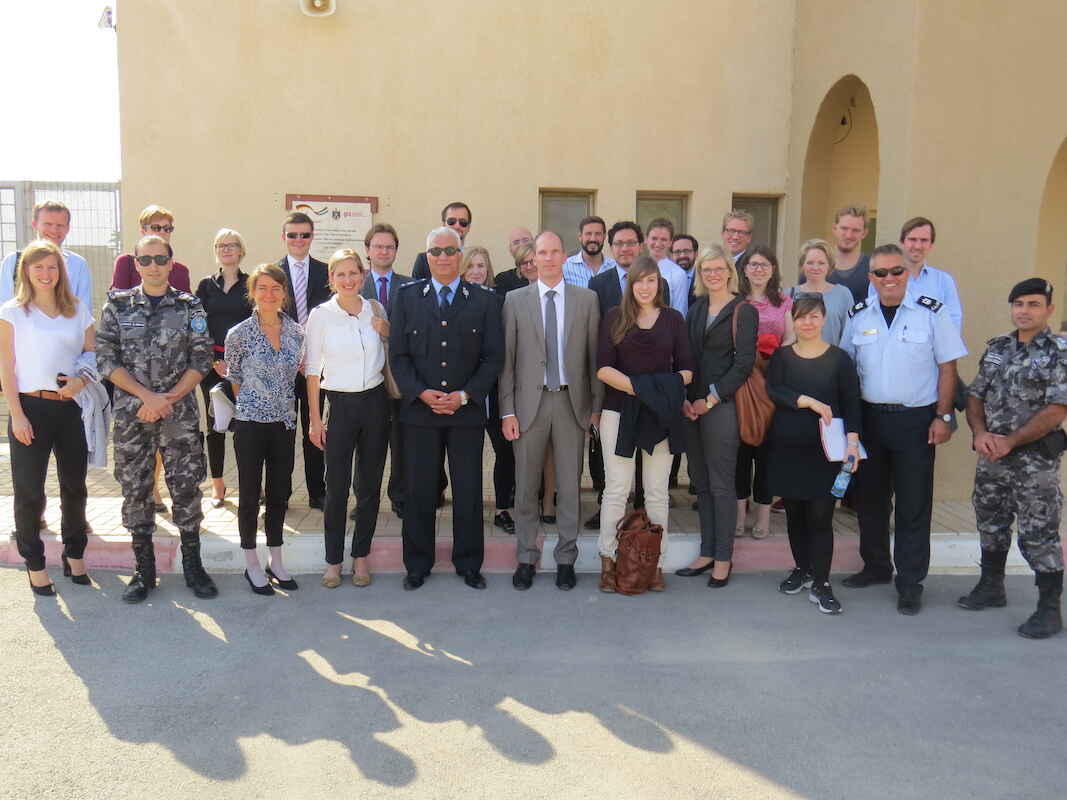
Field Trip to Israel and the Palestinian Territories, 2015 Photo: Körber-Stiftung 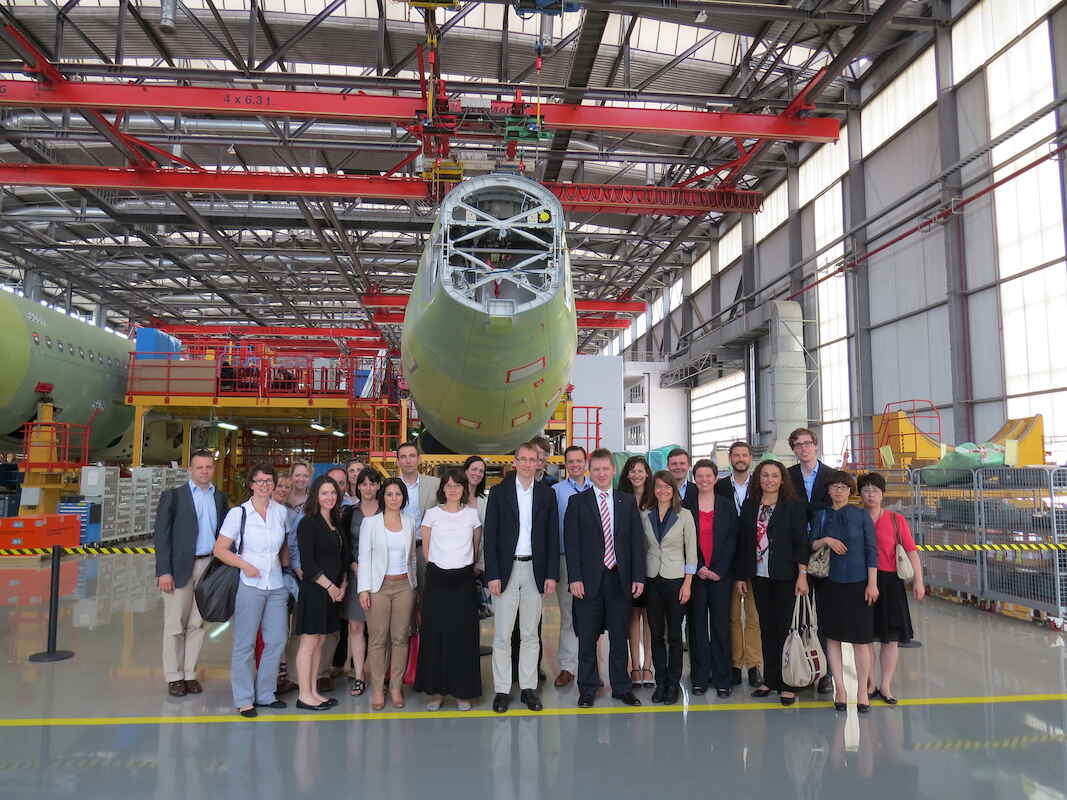
Field Trip to China, 2013 Photo: Körber-Stiftung 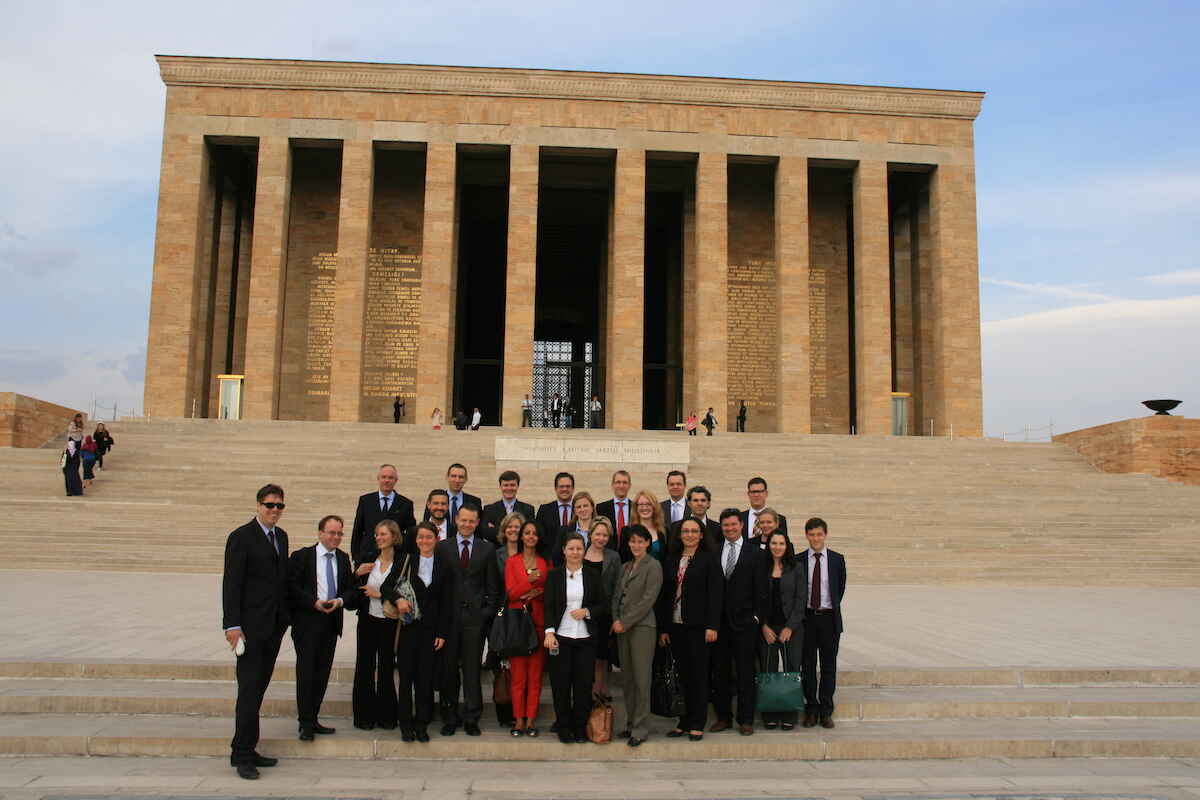
Field Trip to Turkey, 2012 Photo: Körber-Stiftung 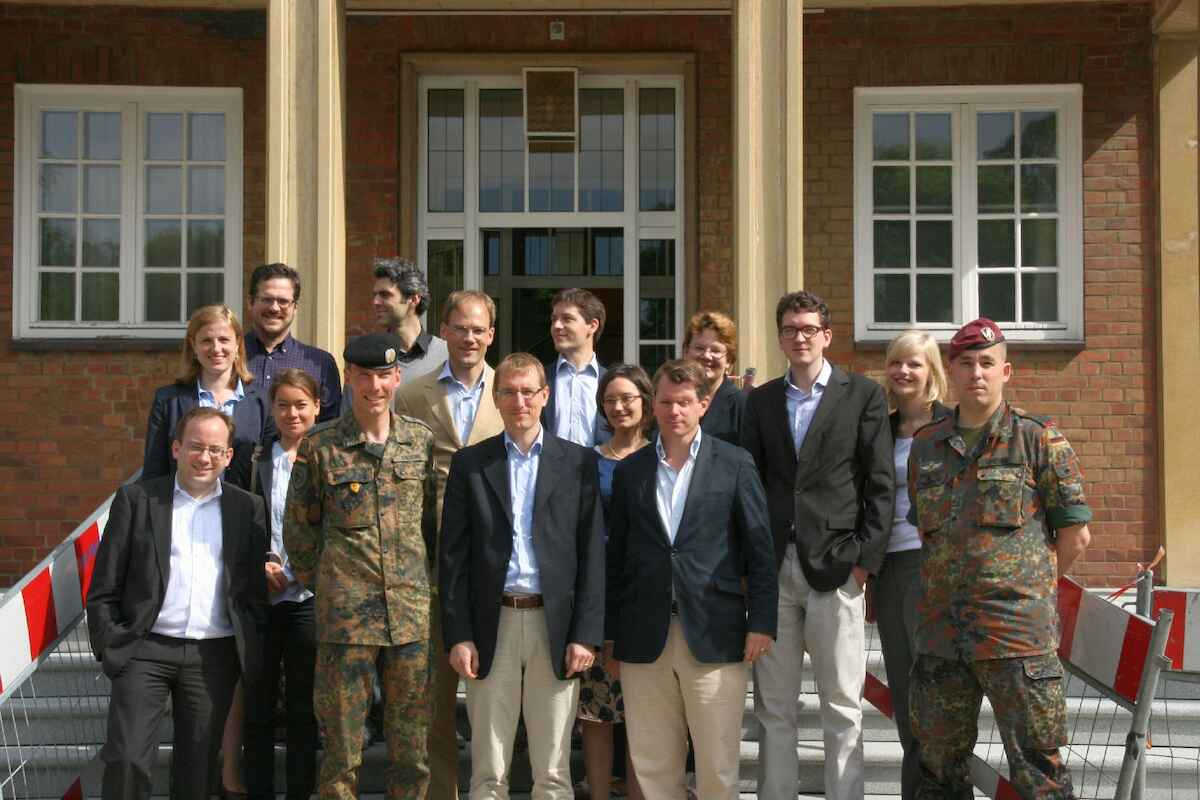
Mini Field Trip to Lüneburg, 2012 Photo: Körber-Stiftung 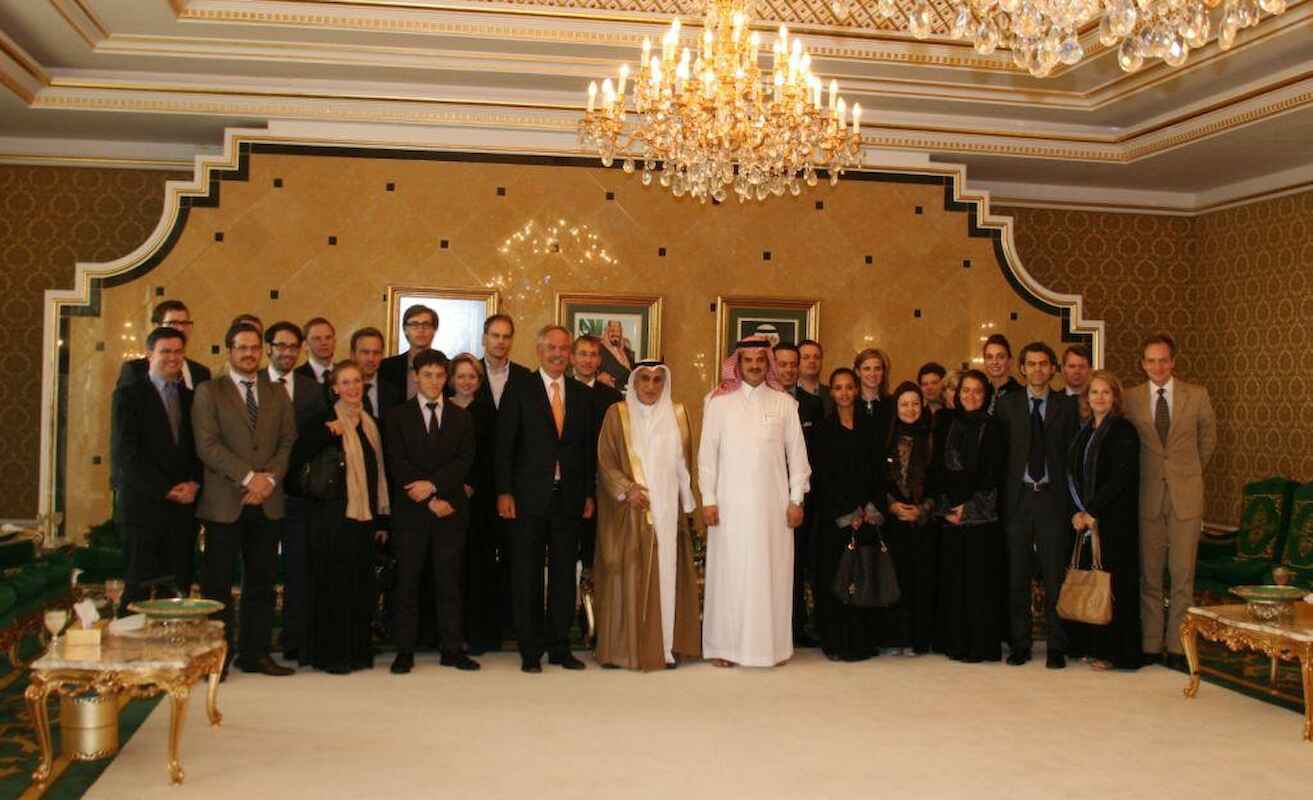
Field Trip to Saudi Arabia, 2011 Photo: Körber-Stiftung 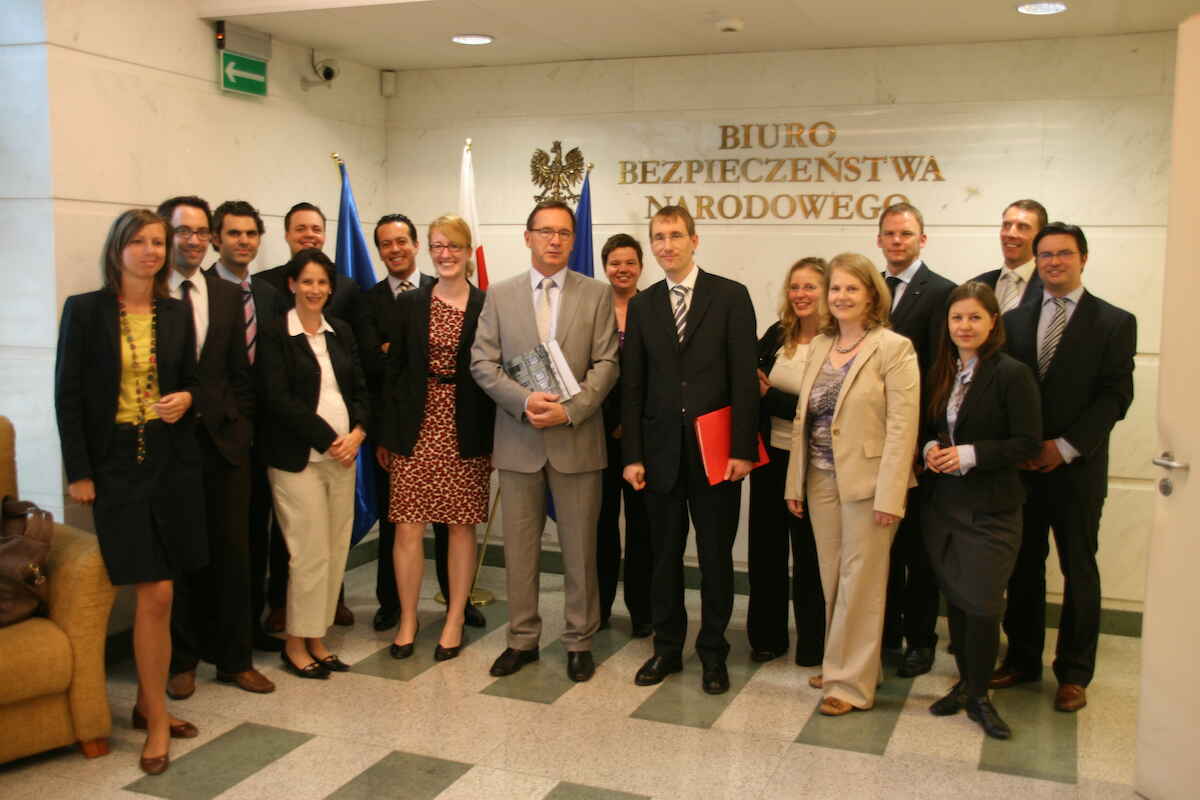
Field Trip to Warsaw, 2011 Photo: Körber-Stiftung 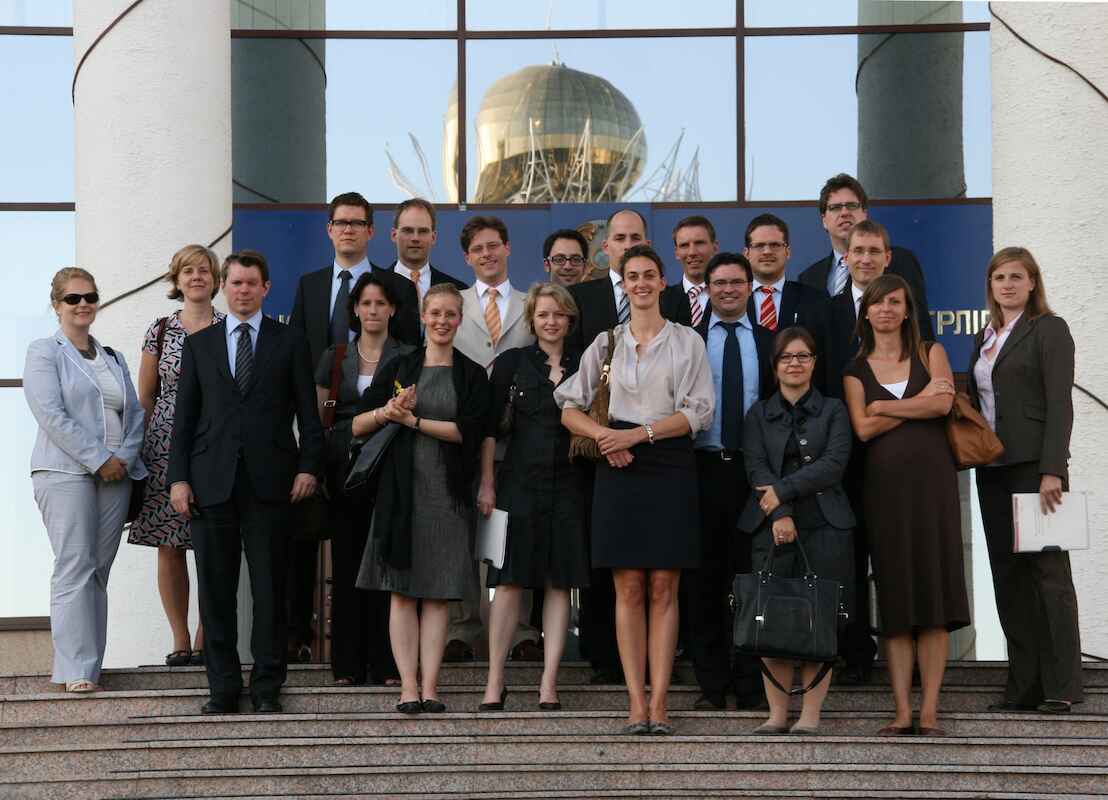
Field Trip to Kazakhstan, 2010 Photo: Körber-Stiftung 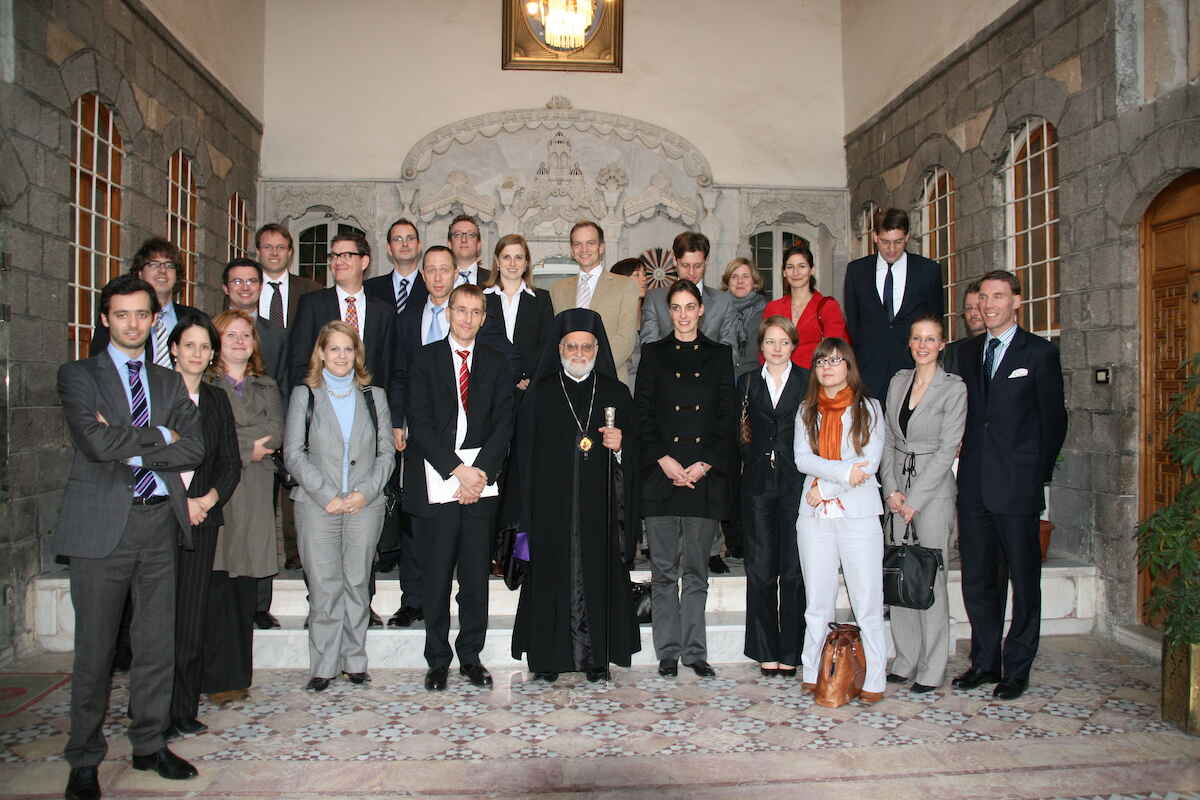
Field Trip to Syria and Lebanon, 2009 Photo: Körber-Stiftung 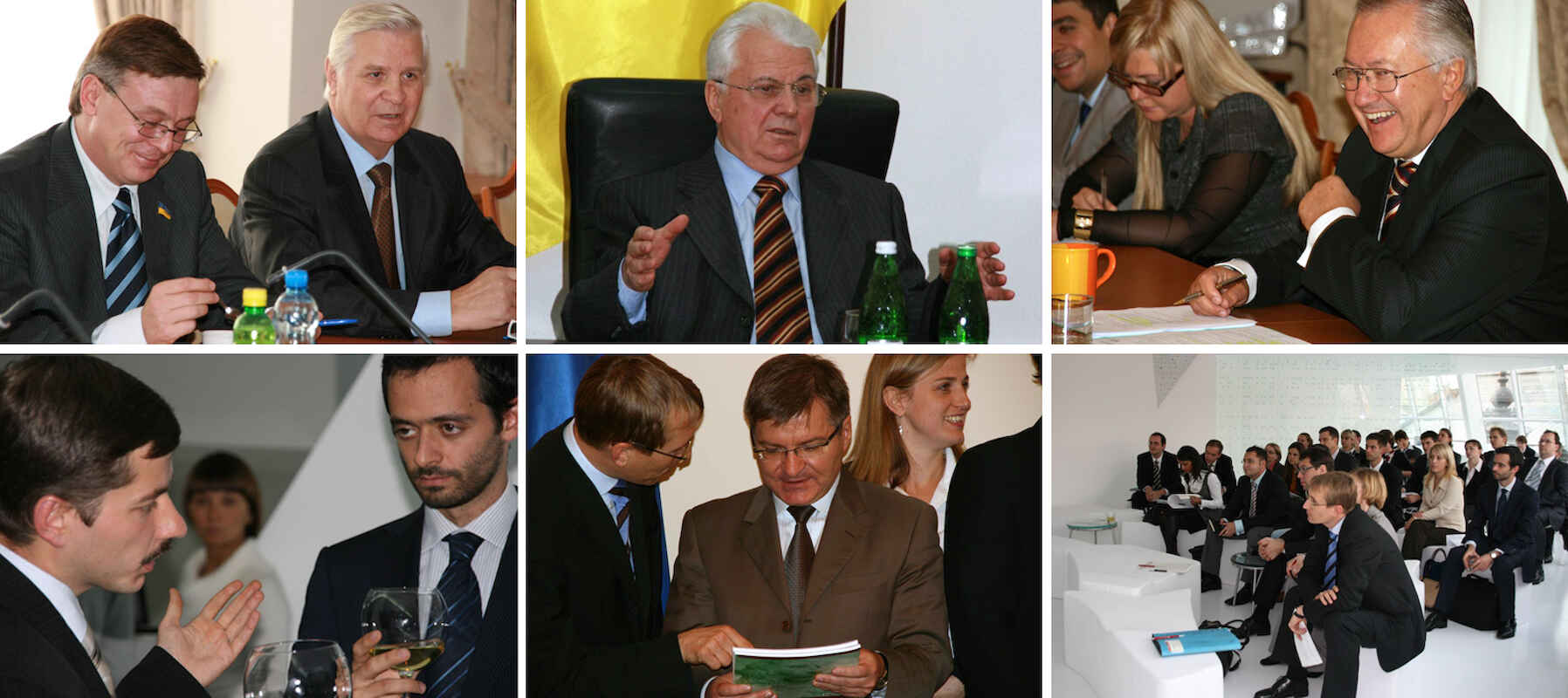
Field Trip to Ukraine, 2008 Photo: Körber-Stiftung 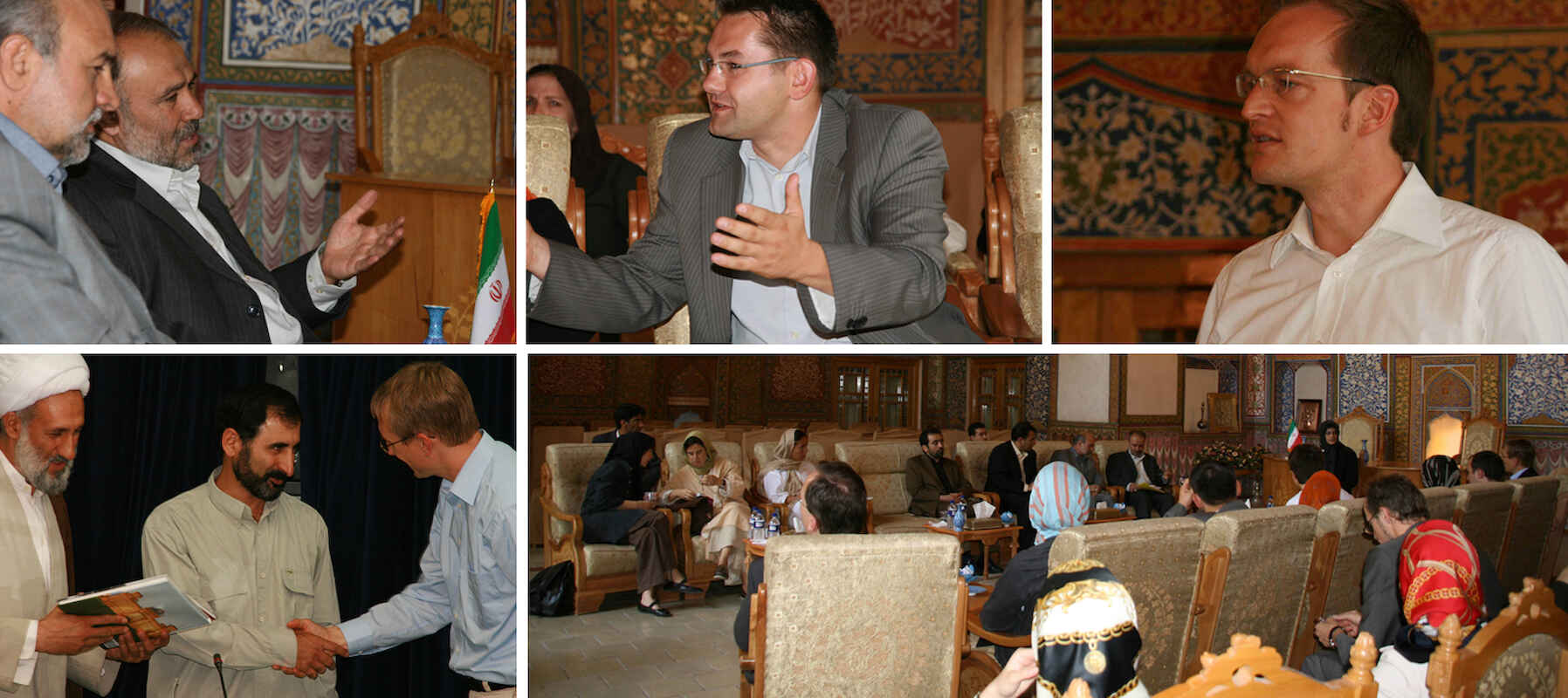
Field Trip to Iran, 2007 Photo: Körber-Stiftung 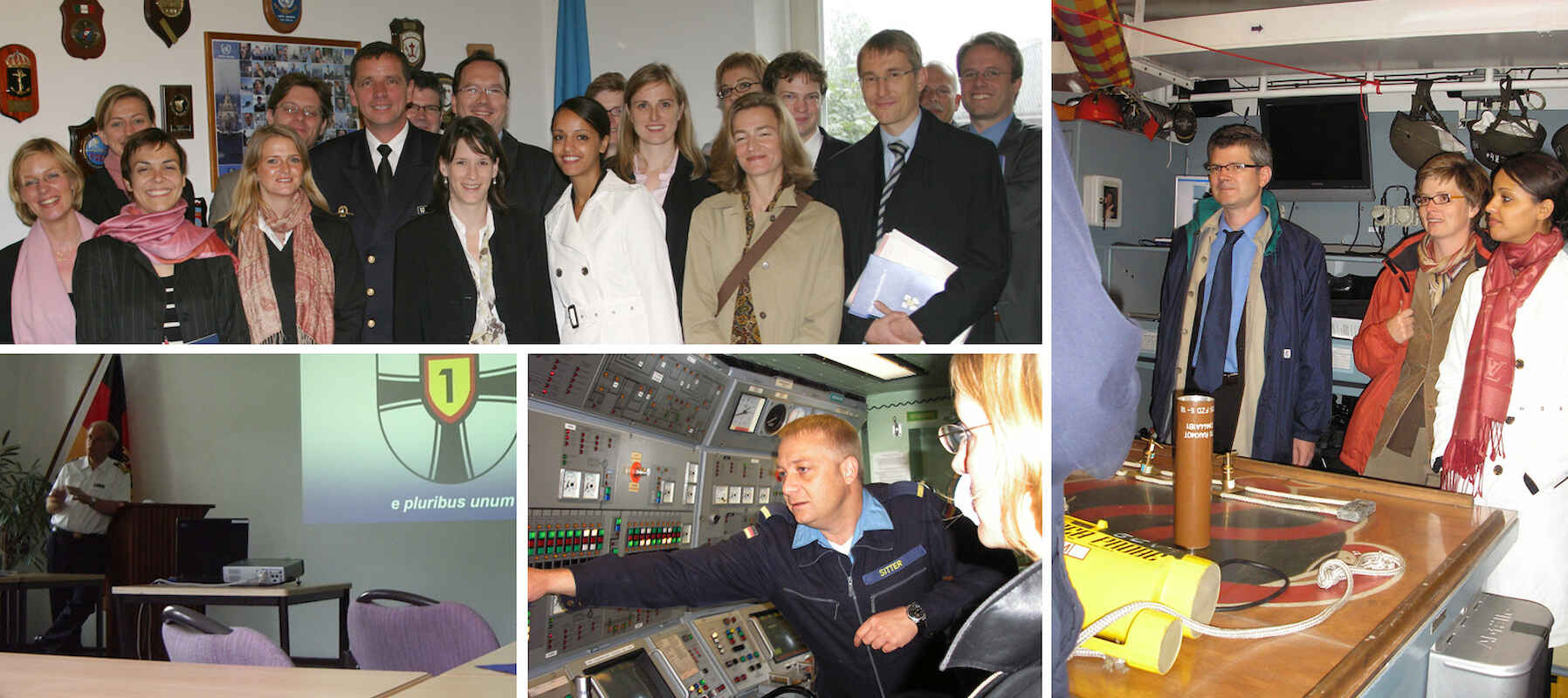
Mini Field Trip to Kiel, 2007 Photo: Körber-Stiftung 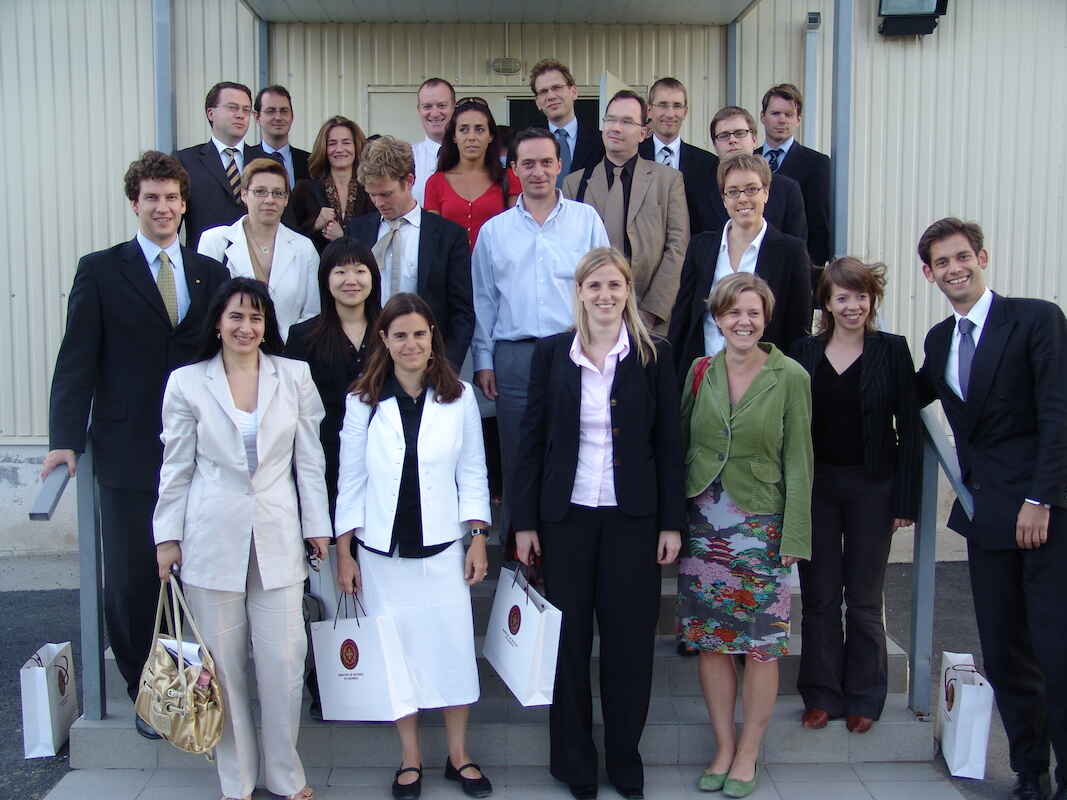
Field Trip to Georgia, 2006 Photo: Körber-Stiftung 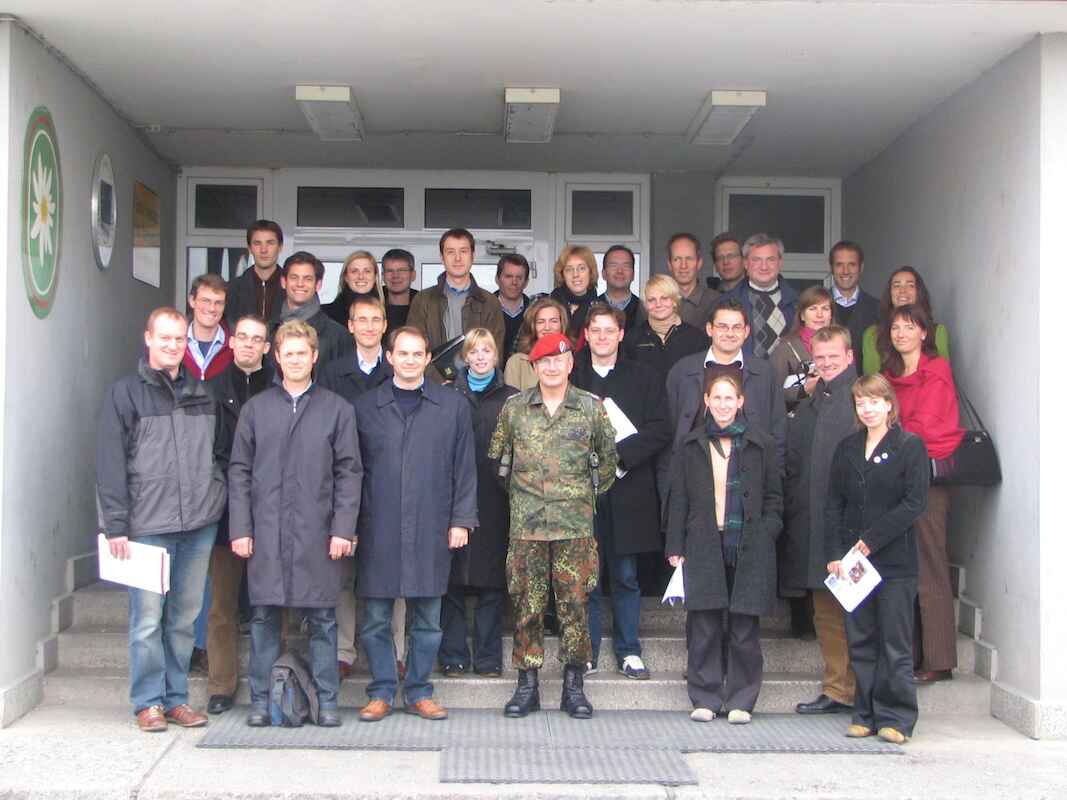
Field Trip to Pristina/Prizren/Belgrade, 2005 Photo: Körber-Stiftung